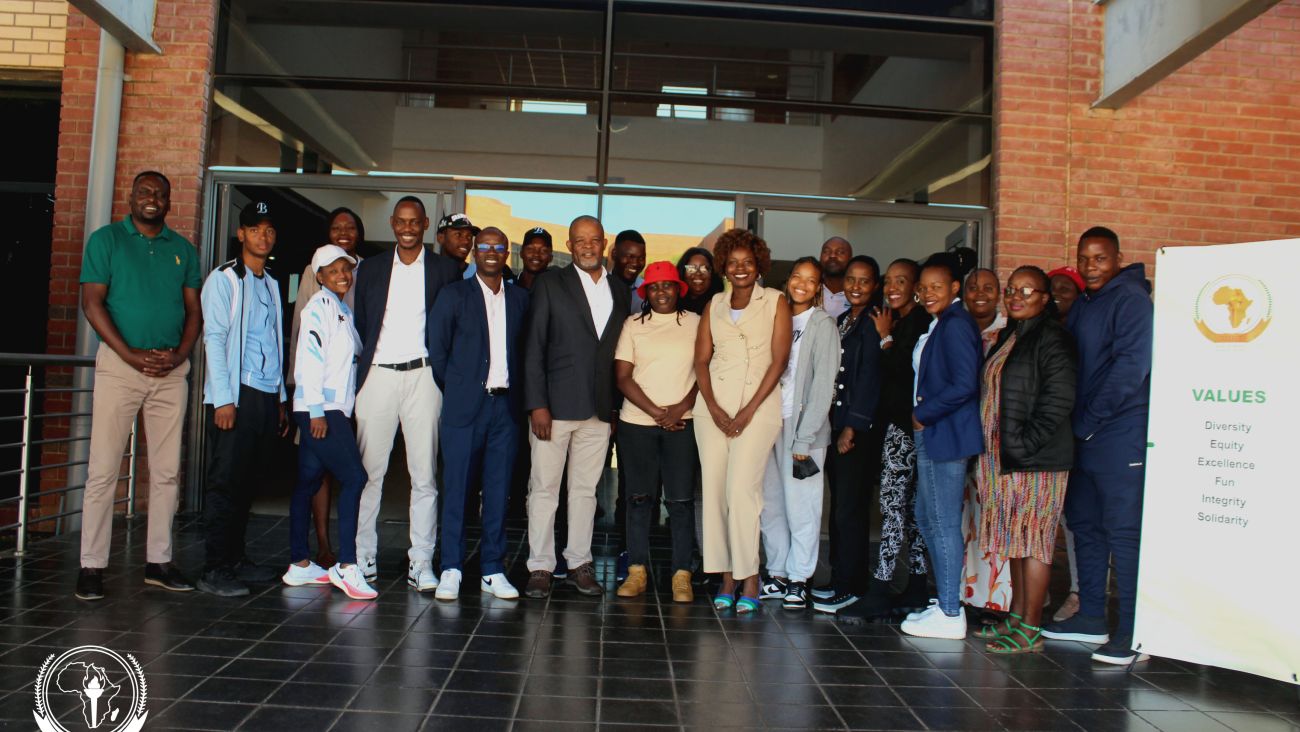The African Union Sports Council (AUSC) has announced a landmark decision to promote peaceful and more inclusive societies. AUSC Region 5 has designated April as Sport for Development and Peace Month. This landmark decision is to raise awareness of the power of sport to promote peaceful and inclusive societies in support of the United Nations’ designation of April 6 as the International Day of Sport for Development and Peace (IDSDP). The theme of this year’s UN IDSDP is “Promoting Sport for Peaceful and Inclusive Societies”.
As part of the commemoration of the IDSDP, Region 5 conducted several activities including radio and television interviews. In addition, to cap off the month-long commemoration, Region 5 hosted a Sport for Development Stakeholders Seminar at the University of Botswana on Saturday, April 20, 2024. The theme of this year’s stakeholder seminar was “Towards a More Peaceful and Inclusive Region: What Role Can Sport Play?”
The aim of the seminar was to explore how key stakeholders can effectively use sport to drive social change, community development and promote peace and understanding in societies.
According to the United Nations, the International Day of Sport for Development and Peace provides an opportunity to recognize the role that sport and physical activity play in the lives of communities and people around the world.
AUSC Region 5 recognizes the power of sport to positively impact society. Region 5 further recognizes and promotes sport as a fundamental right and a powerful tool for strengthening social bonds, sustainable development and peace, as well as solidarity and respect for all. Therefore, the 2024 Stakeholders’ Workshop aims to generate dialogue around how sport can be effectively used as a tool for social development and cohesion.
The Workshop was officially opened by Mr. Tshepo Maphuting, Deputy Permanent Secretary of the Ministry of Youth, Gender, Sports and Culture (MYGSC) of Botswana on behalf of the Permanent Secretary. Mr. Maphuting commended Region 5 for its efforts to seek collective interventions to promote sustainable peace and development in the region through sport. He stressed the need for the region to work together to create a better society for future generations.
At the same workshop, Region 5 Chief Executive Officer, Mr. Staney Mutoya, called on stakeholders and Member States to do more in using sport to solve Africa’s challenges. He noted that peace in Region 5 is not the absence of gunfire, but the rise of poverty, unemployment, drug and substance abuse, juvenile delinquency, climate change, gender inequality and unintentional aggression, all of which pose a serious threat to peace and harmony and economic development in the region.
The hybrid workshop was attended by representatives from government departments, Region 5 member states, the International Association of Mass Sports (TAFISA), Botswana National Sports Council (BNSC), Botswana National Olympic Committee (BNOC), Women and Sports Board of Botswana (WASBO), regional federations, national federations and the University of Botswana. Speakers included Mr. Allan Williams, Executive Director of the Sport for Social Change Network (SSCN) and Stanley Mutoya, Chief Executive Officer of Region 5.
One of the activities held during the workshop was a panel discussion on the role of stakeholders in promoting sports for a peaceful and inclusive region. The panelists included Ms. Keenese Katisenge-Tizhani, Vice President of TAFISA Africa, Stanley Mutoya, Chief Executive Officer of Region 5 and Allan Williams, Executive Director of SSCN. Other members included James Chiutsi, Chairperson of the Region 5 Sports for People with Disabilities (SPWD) Committee, Professor Tshepang Tshube, Senior Lecturer at the University of Botswana, and Dineo Mogapi of BNOC.
Following the panel discussion, the audience had the opportunity to ask questions and provide feedback. It was impressive to see the responses from the participants adding value to the workshop and addressing some of the challenges that the region continues to face in the area of sports development.
The workshop concluded with a plenary discussion where participants openly discussed key interventions and risks to the effective implementation of the Sports Development Plan.
Earlier this month, the region kicked off the IDSDP commemorations through a statement by the CEO on the official Facebook page. In addition, the CEO was interviewed on television by Botswana TV to outline the region’s sports development plans and interventions.
Throughout April, the region has been publishing posts on social media aimed at raising awareness of the need to promote peace and inclusion in the region and beyond.







